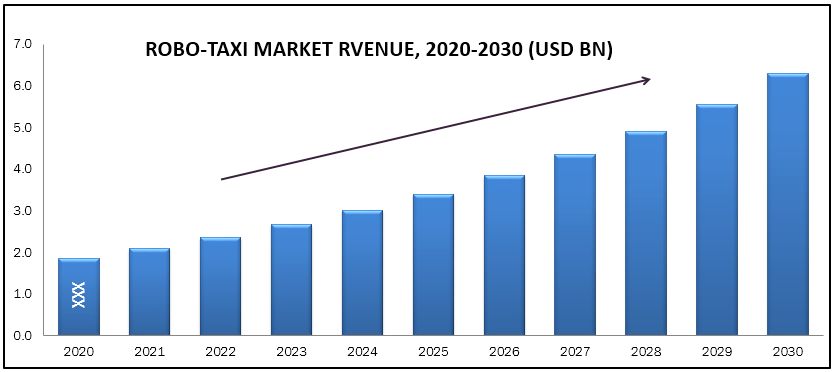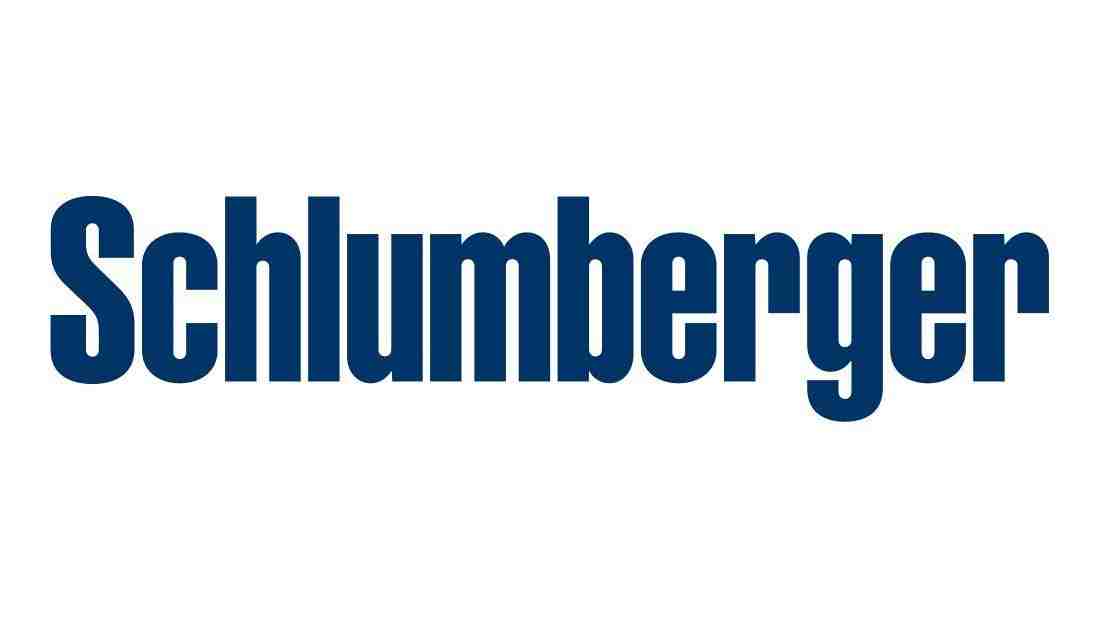Robo-Taxi Market size accounted XXX in 2020 is estimated to reach XXX by 2030 growing with a CAGR of XXX during the forecast period. The robo-taxi is a self-driving autonomous car operated for on-demand mobility service, also known as robo-cab. It is fuel-efficient vehicles, which do not emit any kind of harmful carbon gases, thereby it helps in protecting the environment. Further, this car has become a more affordable solution for the customer by eliminating the need for a human chauffeur, which considered a significant part of the operating costs. Additionally, many companies are coming forward and involving in partnership, collaboration and a joint venture to boost the robo-taxi market growth. For instance, in July 2018 Daimler AG and Bosch Corp, the largest automotive supplier have entered into a partnership to develop driverless cabs. The robo-cab vehicle would be run by a strong and reliable energy-efficient computer, loaded with sensors, and an artificial intelligence software that would be acting as the virtual chauffeur. This partnership between the biggest players in the automobile industry, would revolutionize the entire automobile industry and help the robo-taxi market to flourish positively.
Market Segmentation:
On the basis of level of autonomy, the robo-taxi market is bifurcated into level 4 and level 5. On the basis of propulsion, the market is classified into hybrid cell, fuel, and electric. On the basis of application, the robo-taxi market is segmented into passenger and goods. On the basis of region, the robo-taxi market is categorized into North America, Europe, Asia Pacific, and RoW.
Market Dynamics and Factors:
Currently, three robo-taxi market trends are accelerating transformative change in the automotive industry which are zero-emission vehicles, new mobility models and autonomous driving. All three of these trends, offering the potential for convenient, personalized transport as an attractive alternative to owning a car or using public transport. The growing issues of traffic congestion, increasing pollution are adversely impacting health and overall quality of life. The demand for zero-emission vehicles or green vehicles is rising, also there is a surge in autonomous cars demand. Companies such as Uber, Lyft, and Baidu are collaborating with Tier 1 companies in the race for the deployment of autonomous fleet. For instance, in 2018, Lyft partnered with Aptiv Plc for its self-driving cars. Lyft has completed approximate 5,000 rides in 2018 through its ride-hailing app. Hence all these developments will lead to market growth. However, the robo-cabs are still in testing phases and carries baggage of challenges which includes, high manufacturing cost, the risk of injury to drivers and pedestrians. These factors are expected to restrain the robo-taxi market. Technological advancements and product innovation will lead to an opportunity for robo-taxi market growth
Geographic Analysis:
Europe is the dominating region across the world. The growth in this region is imputed to the technological advancements and developed & supportive infrastructure has helped the fleet operators to test and deploy easily in this region. For instance, as per the European Commission, there are about 180 automobile facilities across the EU and the sector is the largest investor in R&D. Followed by Europe, Asia- Pacific is the second biggest contributor across the world, due to heavy demand for the electric vehicle, and recently the joint venture between Volvo and Baidu for electric self-driving taxis, which further helps as eco-friendly and advanced technical approach. North America is expected to show significant robo-taxi market growth in the upcoming years.
Competitive Scenario:
The key players in the robo-taxi industry are Waymo LLC, Daimler AG., GM Cruise LLC., Aptiv., AB Volvo, Google, Ridecell Inc., Tesla, Uber Technologies Inc., Volkswagen AG, Lyft, Inc., General Motors., BMW AG, Toyota Motor Corporation, Ford Motor Company, Robert Bosch GmbH, Continental AG, Denso Corporation, and NVIDIA Corporation.
Robo-Taxi Market Report Scope
| Report Attribute | Details |
| Analysis Period | 2020–2030 |
| Base Year | 2021 |
| Forecast Period | 2022–2030 |
| Market Size Estimation | Million (USD) |
| Growth Rate (CAGR%) | XXX |
|
| By Level of Autonomy (Level 4 and Level 5), By Propulsion (Hybrid Cell, Fuel, and Electric), By Application (Passenger and Goods) |
| Geographical Segmentation | North America (U.S., Canada, Mexico) Europe (UK, Germany, Italy, France, Rest of Europe), Asia-Pacific (China, Japan, India, Australia, Rest of APAC), South America (Brazil, Argentina, Rest of SA), MEA (UAE, Saudi Arabia, South Africa) |
| Key Companies Profiled | Waymo LLC, Daimler AG., GM Cruise LLC., Aptiv., AB Volvo, Google, Ridecell Inc., Tesla, Uber Technologies Inc., Volkswagen AG, Lyft, Inc., General Motors., BMW AG, Toyota Motor Corporation, Ford Motor Company, Robert Bosch GmbH, Continental AG, Denso Corporation, and NVIDIA Corporation |







